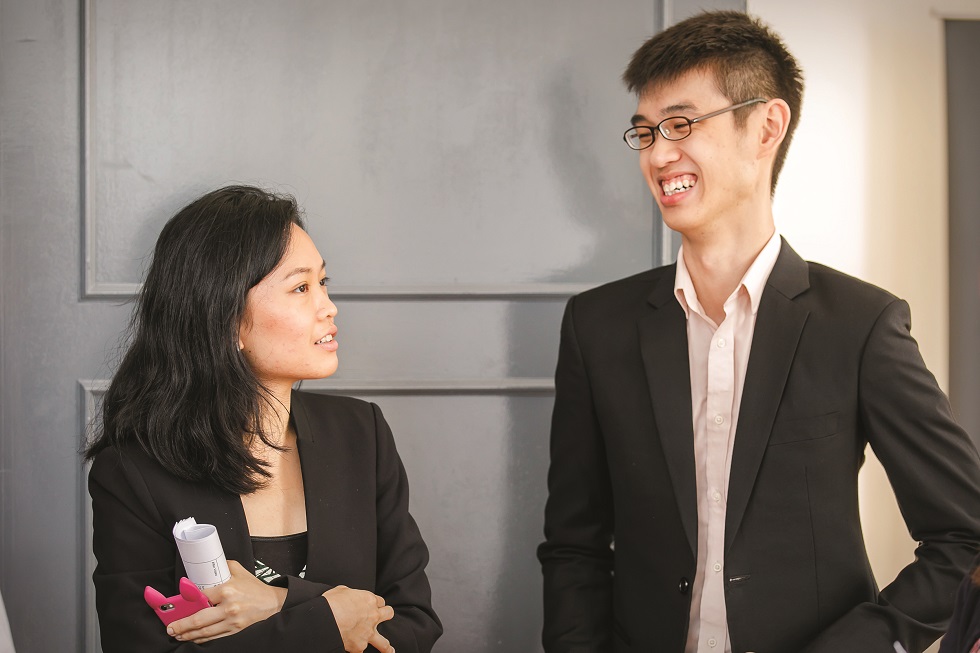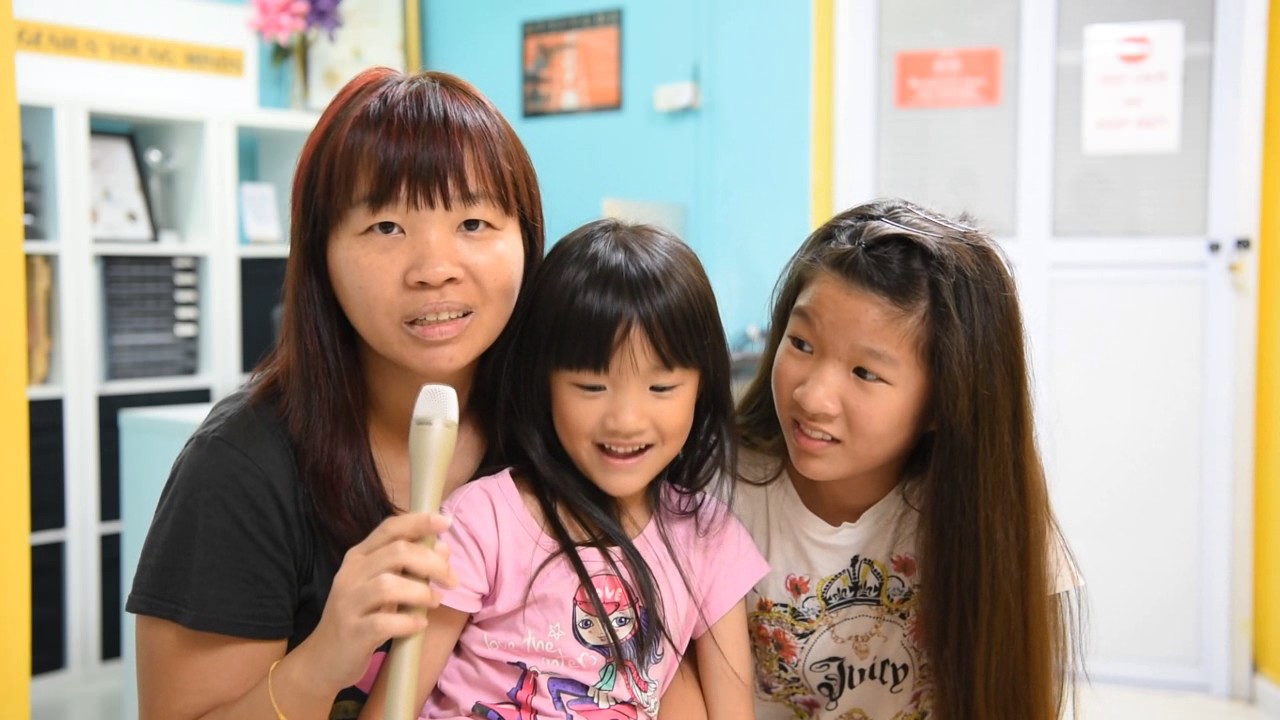By ,
Young, meticulous, passionate – these are the qualities that represent Looi Qin En, co-founder of Glints, a Singapore-based job portal targeting millennials. Glints aims to help millennials explore jobs, internships, courses and other opportunities, and do what they love.In 2014, Oswald Yeo, Looi Qin En and Seah Ying Cong chose to drop out of their prestigious university education at the University of California Berkeley, Stanford University, and University of Pennsylvania’s Wharton Business School to fulfil their startup dream – Glints, which the three co-founders established while they were still in the army.
It might seem like an irrational decision for many, but to these millennial bosses, they have clear directions and goals of what they want to achieve.
While Glints supports the ready-hiring approach of traditional companies, it also presents an opportunity for companies to position themselves as an employer of choice through awareness.
“The most common form of building this awareness is by hiring internships, but it can take place in many forms, including events, hackathons, pitch competitions – all of which Glints has organised for dozens of employers before,” said Qin En.
Today, Glints is taking off. It announced on Sept 6 last year that it has raised US$2 million (S$2.8 million) in Series A funding led by Gobi Partners and Golden Equator Capital. Other investors, including Fresco Capital, Wavemaker Partners, Singapore Infocomm Investments, Pix Vine Capital, East Ventures and Darius Cheung of 99.co, have also lent a hand.
But unlike the founders of Glints, not every young person is optimistic about his or her career goals in the workforce of the future. According to an interesting survey on millennials initiated by Glints, they found that:
90% of the youths surveyed say that the workforce of the future that they will be graduating into will be radically different from today’s workforce.
However, more than half of the respondents (56%) believe that what they are learning in school is inadequate for this future.
Consequently, 78% of them have actively searched outside of school for opportunities (e.g. competitions, internships, projects) to gain skills for their future job.
Further, 82% of the youths are even willing to sacrifice personal leisure time and social time to participate in these opportunities.
In view of the above findings, how can millennials thrive in the radically different workforce of the future?
Moreover, Deputy Prime Minister Tharman Shanmugaratnam said at the 50th Anniversary of National University of Singapore’s (NUS) Business School in 2015: “Singapore’s future lies in being an innovative economy.”
But does our local culture breed innovation?
The Epoch Times quizzes Qin En on this and more in an exclusive interview.
Epoch Times (ET): Based on your interaction with talented youths and employers, are millennials being adequately taught in schools?
Qin En: What is taught in schools is inadequate, but I think schools recognise that and hence are creating more opportunities for millennials to complete their education through real world, practical experience. We see a lot of effort and initiative put in by the polytechnics and universities.
Case-in-point is how Ngee Ann Polytechnic is actively sending students overseas for internships. A year ago, their Global Entrepreneurial Internship Programme had one city – Silicon Valley, where students were sent to. Today, Ngee Ann Polytechnic is sending students to six cities – Silicon Valley, Helsinki, Beijing, Shanghai, Ho Chi Minh and Jakarta.
ET: What are some important, in-demand skills that are most sought after by employers?
Qin En: There are dozens of skills that are dependent on the job, but what’s most important is for students to be relentlessly resourceful. That’s what I emphasise to all the people I meet, as well as my team members.
Being relentlessly resourceful means telling yourself that no matter what, I have to accomplish my goals (relentless), and I will find the ways and means to achieve them (resourceful). I see that those who are relentlessly resourceful tend to succeed because it is this mindset that helps them acquire the skills and competencies.
ET: Do you think a paper qualification is important in today’s world? Do you think it is still important in the future workforce?
Qin En: Paper qualifications are useless. But the process of achieving the paper qualifications is useful. Given the emphasis our polytechnics and universities have on preparing students for the future workforce (not just in the classroom but through internships, projects, etc.), this is an important process for students to go through.
The paper qualification in itself is not useful at all, but the learning process to achieve the paper qualification is.
ET: In your opinion, what will the workforce look like in 2020?
Qin En: The workforce in 2020 will be one that moves at lightning speed. We’re not talking about years for change to impact. We are talking about seconds and minutes. And that means being relentlessly resourceful, because one can never keep up with all the changes.
ET: In your opinion, can one be trained to be more innovative? In your opinion, does Singapore’s culture breed innovation?
Qin En: Innovation can be trained, through the continuous practice of solving real-world problems. If you think about the world’s greatest innovators, they were solving problems for mankind. I don’t think that innovation is innate; it’s the exposure to real-world problems that refines the individual’s thinking.
As for whether Singapore’s culture breeds innovation, I think there’s a lot of effort put in by many ministries and agencies to foster innovation, but there’s a secret force that’s working against them – scholarships.
We often complain that Singapore doesn’t have innovative talent, our millennials aren’t risk takers or innovative enough, and we don’t produce enough Steve Jobs, Elon Musks and Bill Gates. But if you take a look at where the top of our cohort goes to, scholarships are awarded in the hundreds to these top students.
As a result, we have really smart people in the government planning our parks, coming up with new MRT lines and defending the country (all of which are important roles), but very few entrepreneurs and innovators. By the time they complete their four to six year bond, this is the phase in their life when they have just settled down and started a family. Leaping out to be entrepreneurial is not feasible for them.
So I think in order for our culture to breed innovation, we really have to take a step back and rethink how we are rewarding and encouraging our top students from each cohort.
















